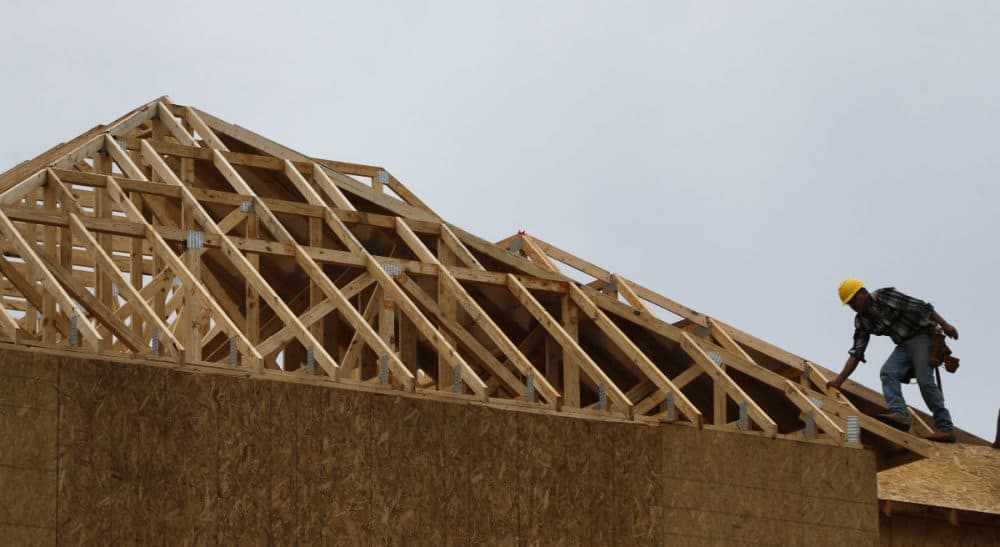Advertisement
Housing Overregulation: Liberals’ Contribution To Inequality

“I moved to San Francisco for its radical politics,” the president of the Bay Area think tank SPUR recently wrote. But his radical utopia “is almost gone now,” he lamented, “destroyed by high housing costs. … Every time a housing unit becomes vacant, it goes on the market at a price so high that no organizer, writer, teacher, activist or artist could dream of affording it.”
Pricing out writers? That’s un-American. The blame for that outrage is clear, he writes. A surge in population began around 1980, yet “when San Francisco should have been building at least 5,000 new housing units a year to deal with the growing demand to live here, it instead averaged only about 1,500 a year over the course of several decades.”
It’s a story playing out across the country, and therein lies a moral.
It’s a story playing out across the country, and therein lies a moral. Conservatism wouldn’t be conservatism without kvetching about excessive government regulation that kills either jobs or freedom. In many areas, it’s a bum rap: on Obamacare, bank regulation, climate change, guns. But the right is right when it comes to pernicious regulation of housing, and for the evidence of that, you may simply need to look up the street where you live.
Housing for low-income people is in short supply from Greater Boston to New York to San Francisco. A recent spate of reports from each of these housing fronts fingers the same culprit: a housing shortage due to a regulatory straitjacket on construction, imposed by misguided liberals in some of our bluest political precincts.
In our own backyard, The Boston Globe’s Farah Stockman reports that almost half the municipalities participating in METCO (a program placing inner-city children in suburban schools) ban multi-family housing — the kind disadvantaged people can afford — except by special permission. They include such walled-off wealth havens as Lexington, Weston and Wayland. Other communities mandate minimum housing lots of an acre, Stockman said, further strangling the affordable housing pipeline.
“The result?” she writes. “The Boston metro area remains one of the most racially and socioeconomically segregated housing [markets] in the country, despite our liberal reputation.” Well-paid African-American professionals are welcomed in these communities, “but electricians and hair-dressers? Not so much.” A recent Cognoscenti column confirmed that Beantown rents are soaring far faster than incomes, and scholarship corroborates Stockman’s point that local policy crimps housing construction.
Drive south to New York City and the situation’s the same. No prouder cheerleader for both liberalism and urban living breathes than Nobel-winning economist Paul Krugman, but in a ruefully titled “Inequality and the City” column, he blows away the Carrie Bradshaw froth about the Big Apple. Affluent professionals have flooded the city in recent years to avoid mind-numbing commutes and partake of New York’s amenities. Those people need homes, and “there’s still room to build, even in New York, especially upward,” writes Krugman. “Yet while there is something of a building boom in the city, it’s far smaller than the soaring [housing] prices warrant, mainly because land use restrictions are in the way. And this is part of a broader national story” in which the rise of housing prices outpace construction costs.
“Yes, this is an issue on which you don’t have to be a conservative to believe that we have too much regulation,” is as big a smooch from Krugman as the right will ever receive.
This is one with a straightforward solution. As Krugman says, use the available space, horizontal or vertical, and build, baby, build.
As a young reporter in New Hampshire and Vermont, I covered the backlash against development in small communities, rooted in the same sensibility the San Francisco writer outlines in his big city: Regardless of the need for housing, “most San Francisco progressives chose to stick with their familiar stance of opposing new development, positioning themselves as defenders of the city’s physical character.”
Regulation has a role in mandating that new construction include affordable units. Boston Mayor Marty Walsh's doubling of luxury development fees to subsidize affordable housing is also a good step. But our “progressive” local regulations risk leaving our greatest cities as playpens for the wealthy, testimonials to our growing inequality. This is one with a straightforward solution. As Krugman says, use the available space, horizontal or vertical, and build, baby, build.
